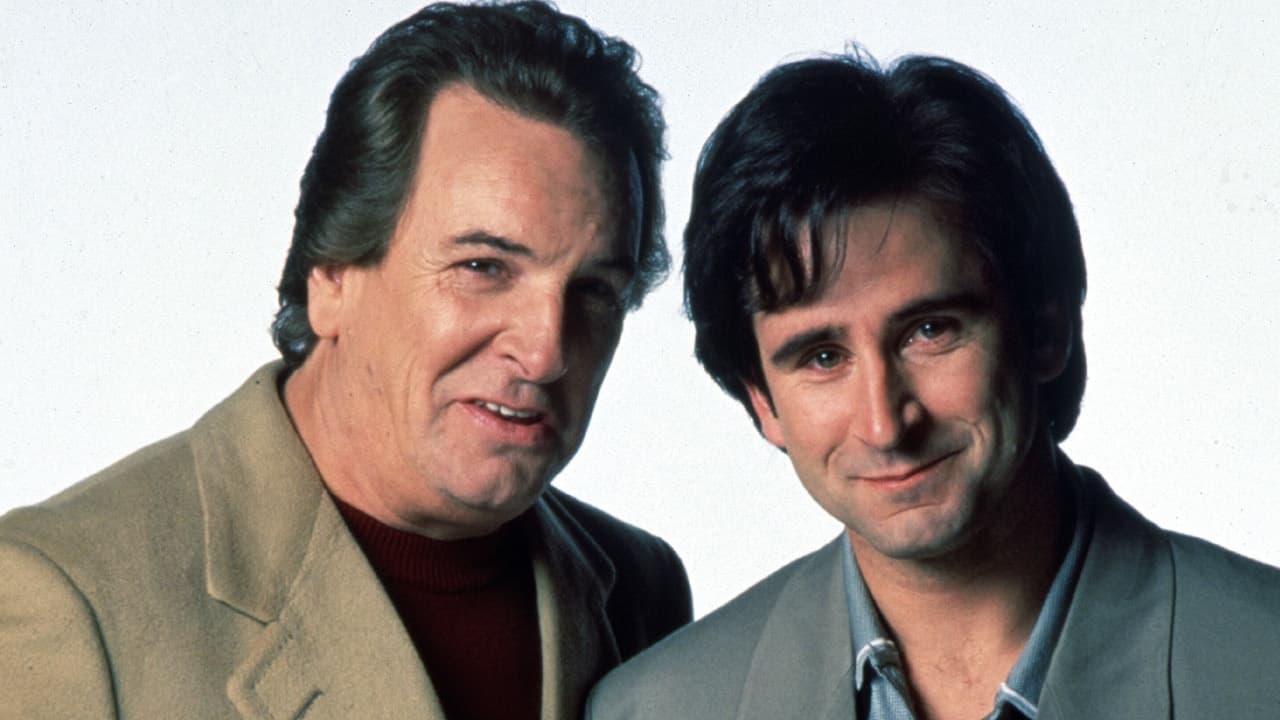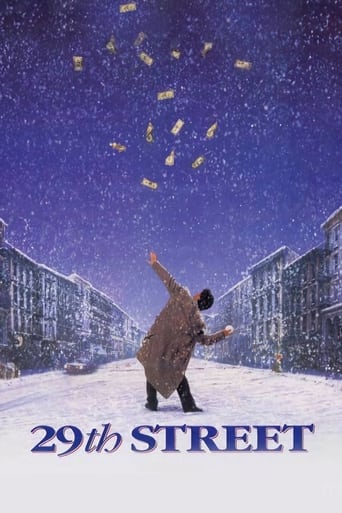

SERIOUSLY. This is what the crap Hollywood still puts out?
... View MoreReally Surprised!
... View MoreMost undeservingly overhyped movie of all time??
... View MoreThis movie was so-so. It had it's moments, but wasn't the greatest.
... View MoreIt's 1976. Frank Pesce Jr (Anthony LaPaglia) is announced the winner of the first New York State lottery worth $6.2 million. Instead of being happy, he angrily pelts the church with snowballs. He gets taken to the police station where he explains his story to Sgt. Tartaglia (Robert Forster). He has always been lucky. On the other hand, his father Frank Sr (Danny Aiello) is always unlucky.It's got a lot of the Italian stereotypes in a meandering boring story. It's suppose to be quirky fun but none of it makes me laugh. LaPaglia is more annoying than charming. The last half hour turns into something more interesting. It would help the movie to have a more compelling family instead of this standard bickering clan. I had a tough time feeling the love until the last bit.
... View MoreFrank Pesce did not win $6.2 million in the 1976 Empire Stakes lottery in New York. He didn't win a penny because there wasn't such a lottery or drawing on that date. New York launched its Empire Stakes game in January 1977. But, scenes in "29th Street" clearly show a drawing for such a lottery on Christmas Eve of 1976. So much for this film being "based on a true story," as the IMDb storyline reads, and as the movie implies and so many reviewers seem to believe. People in general, and movie buffs especially, should be wary of a claim that a film is "based on a true story." That can mean anything. "Based on" might mean no more than keeping the title of a novel. Or, it might mean a thorough and accurate rendering of a book. Most often, it means something in between. Perhaps a story that has been altered in time, with events, with fictitious characters or accounts, and/or absent some events and people. In "29th Street." the only resemblance to reality may be some of the interplay in the Pesce family. But even that must be suspect. Newspaper articles in 1991 (L.A. Times and N.Y. Times) discussed this film and its origin with skepticism. After all, Pesce, who is a character actor, has given no personal details about himself or his family. The IMDb Web site doesn't even have his place and date of birth. So, the accuracy of the film build-up aside, how does this movie stand on its own? While the plot and premise of this story are strange and hard to believe, the script is good and the acting is very good. This is a story about a family that is dysfunctional, yet strongly bound in love. That is its endearing aspect. No matter what the situations, and no matter what the mistakes of one or more members, in the end they are bound by love. This is shown most often in the relationship between Frank Pesce senior and Frank junior, played by Danny Aiello and Anthony LaPaglia, respectively. Their frequent arguments are laced with humor at times. Lainie Kazan is excellent as Mrs. Pesce, and Frank Pesce (the real Frank Pesce?) plays the older brother, Vito Pesce. The movie has considerable profanity and dodges all around questionable legal activities. It has something of a fairy-tale atmosphere about it. The idea for the story and film was concocted by Frank Pesce and his friend, actor James Franciscus. It was supposed to resemble Pesce's family when he grew up in a tough New York neighborhood of Italian and other ethnic families. Newspaper articles of the time liken parts of it to other films and sitcoms of the past. For a comparison of films based on real incidents, watch "It Could Happen to You" of 1994. That movie is about a New York cop who splits his winnings from a lottery ticket with a waitress. When he didn't have enough money to leave a tip, he gave her a choice of half his lottery ticket if he should win or double the tip when he comes back the next day. The film promotion says it was "inspired by" a real event or true story. And, it had a good basis. The real-life incident was in 1984 when New York policeman Robert Cunningham asked a waitress friend, Phyllis Penzo, to split a lottery ticket with him, in lieu of his leaving her a tip. Each picked three numbers and when Cunningham learned that his ticket had won $6 million, he honored his deal and split the money evenly with Penzo. Many reviewers enjoyed "29th Street" for its family depictions and nostalgic connections to growing up in similar neighborhoods. I can appreciate that. Some wondered why this movie hasn't had more play or isn't better known. Could it be because it was almost all fiction but seemed to imply and continues to be tagged as though it is based on real events?
... View MoreThis picture hit the hard luck family right on the nose. A hardworking family with age old values struggles with life while one floats along with an odd sort of luck. you can see the frustration between a focused father and a happy go lucky dreamer son as he bounces from dead end jobs to affiliating with the seedy underworld mob types. Good laughs and near misses in tragedy fuel this well developed plot. The ending is unbelievable and will leave you with a warm feeling in your heart. you will believe that anyone can triumph no matter how bad the situation is.
... View MoreThis is the story of the luckiest man alive. It's as interesting as it sounds. An undiscovered gem, with great acting and great actors, namely Danny Aiello and Anthony LaPaglia.Do yourself a favor and watch this movie. You won't regret it.10/10
... View More